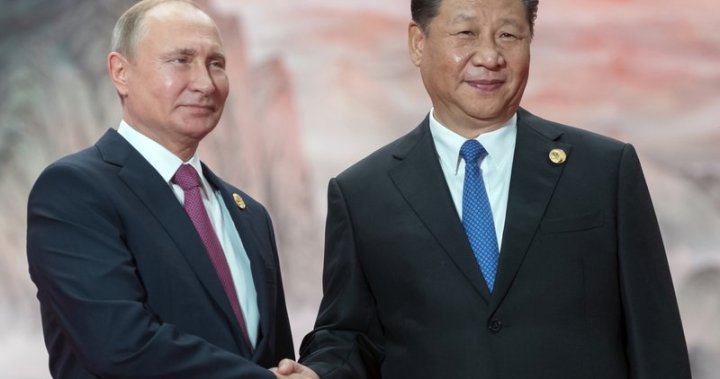
‘No forbidden areas’ in Russia-China friendship when it comes to defying U.S.
Global News
The two countries have moved closer as both have come under pressure from the West on issues including their human rights records and Russia's military build-up near Ukraine.
China and Russia proclaimed a deep strategic partnership on Friday to balance what they portrayed as the malign global influence of the United States as China’s President Xi Jinping hosted Russia’s Vladimir Putin on the opening day of the Beijing Winter Olympics.
In a joint statement, the two countries affirmed that their new relationship was superior to any political or military alliance of the Cold War era.
“Friendship between the two States has no limits, there are no ‘forbidden’ areas of cooperation,” they declared, announcing plans to collaborate in a host of areas including space, climate change, artificial intelligence and control of the Internet.
The agreement marked the most detailed and assertive statement of Russian and Chinese resolve to work together – and against the United States – to build a new international order based on their own interpretations of human rights and democracy.
Steeped in ideological discourse, it was not clear whether it would immediately translate into an increase in tangible and practical cooperation despite Putin trumpeting a new gas deal with China on Friday, or was intended as more of a statement of general policy intent.
“The two leaders are announcing their determination to stand together and to stand against the U.S. and the West — ready to withstand sanctions and contest American global leadership,” said Daniel Russel of the Asia Society think tank, who served as the U.S. State Department’s top diplomat for East Asia under the Obama administration.
While not formally allied, the two “are making common cause as a tactical matter to better defend their respective interests and their authoritarian systems from Western pressure”, he said.
Jonathan Eyal of the London-based Royal United Services Institute said the declaration marked a “frontal rebuttal” of the U.S. and Western view of the world and a possible building block towards a military alliance.













